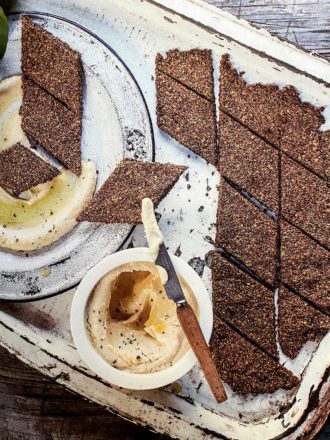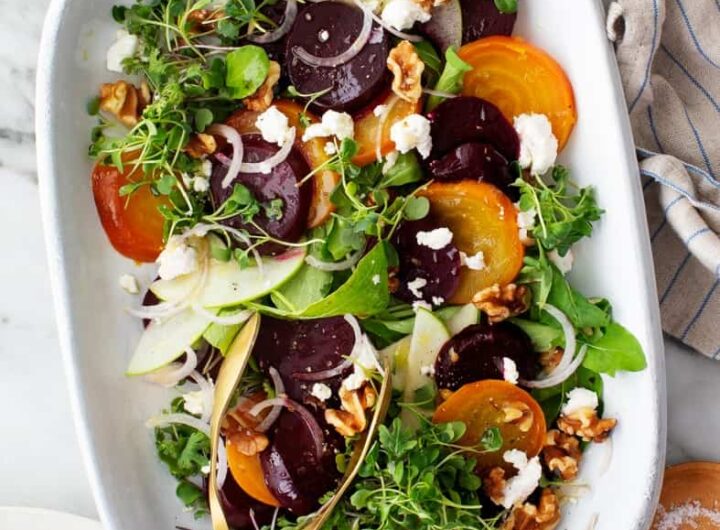

Please raise your hand if you’ve ever felt personally victimised by the health food industry.
Keep your hand raised if you’ve ever tried a different way of eating and felt bad/guilty/ashamed when it didn’t work for you.
Same.
One of the most controversial areas of the health food industry is around the idea of snacking.
Should you snack?
Will it make you put on weight?
Is it ‘bad’ for you?
If you’re not hungry, should you still have a snack?
The truth is, it’s entirely up to you, so can we please stop the fear-mongering? If you’re hungry, you should eat. It’s as simple as that. Snacking doesn’t need to be something unhealthy, something that makes you feel guilty or something you have to avoid.
For many, snacking has become a pastime during isolation, helping to alleviate stress or solve boredom. While food can act as comfort during stressful times, it shouldn’t be your only option.

Personally, I’ve been trying to use the time to up my game when it comes to mindful eating. You can read more about mindful eating here. So, if I do feel the desire to alleviate stress and think about a bar of chocolate in my house, I’ll first try speaking to a loved one, walking around the block or doing a meditation app, and then I’ll reassess how I’m really feeling and what I’m craving. If I find I still want a snack, I choose something that will help sustain my energy like this sardine mash pot or if I’m really hungry I’ll put it on this delicious toast.

That being said, there’s a difference between snacking on cut-up veggie sticks and finding yourself falling into the daily habit of being elbow-deep in a large packet of potato crisps, then licking your fingers to erase any evidence. There is nothing wrong with snacking, but snacking excessively, or on discretionary foods everyday, isn’t advisable for long term health.
If you’re deciding whether or not snacking is right for you, have a think about your meals. If you’re not intermittent fasting, I recommend consuming three balanced meals daily, including a source of fibre, protein and healthy fats at every meal. If you find the hours between breakfast and lunch, or lunch and dinner, unbearably long, a snack mid-morning or mid-afternoon may suit you. If you ignore tummy grumbles mid-afternoon, you may find yourself stuffing yourself silly with the chocolate you have in your secret chocolate cupboard after dinner instead. #weareonlyhuman.
So, you’ve decided to snack, now what? Rather than eating on the run, sit down take a big breath and really savour each bite. This can feel silly at first, but it can help you align with your own specific hunger cues and understand when you’re hungry and when you’re snacking out of boredom, emotional cravings or anything else. I love to savour this banana bread, it’s a must and really satisfies cravings!

If you’re looking for a snack, and not the dating kind, you’ve come to the right place.
When choosing a snack, look for something satisfying, but not overfilling. Like when you make meals, I recommend combining protein, fibre and possibly a healthy fat, to keep the grumbles away and help you feel fuller for longer. Some great snacks include:

Now THAT’S a snack!
These snacks are balanced and can help stabilise blood glucose levels, which can prevent overeating later on during the day. Sit down and enjoy your snack, one bite at a time.
Whether you snack or not doesn’t need to be a binary. Some days you may feel the need to, and others you won’t. While a million health bloggers will give varied advice, remember that you are unique; you have a different body, schedule, and lifestyle to work with, and you’re the best judges of what is best for you!
Which brings me to another contentious topic; dairy. I know that cow’s dairy isn’t for everyone, but calcium sure is! Calcium is required for healthy bones, nerves, cardiac health, muscles and teeth. Sources of calcium include unhulled tahini, almond butter, dark leafy greens such as kale and collard greens, calcium-fortified milk, tofu and, of course, dairy.
If you can’t tolerate cow’s cheese, why not consider goat’s cheese? Goat’s cheese has less lactose than cow’s dairy, and many find it easier to digest. It’s rich in vitamins and minerals and tastes very delicious. While it may be a little more expensive than the run of the mill dairy, it’s well worth it!
Done mindfully, snacking can boost energy and keep hunger at bay. If you’re ready to take on the ultimate snack party platter, or, possibly just your regular, average afternoon snack, try out my Omega Cheese Crackers with a delectable dip. Combined, this take on your regular ‘cheese and crackers’ is a supercharge of flavour, fibre, protein, vitamins, minerals and essential fats.
So, go on, I know you want to.

Omega Cheese Crackers
{MAKES ABOUT 24}
Home-made crackers are a great way to save money, save the earth by reducing package waste, and just make dip dunking and snacking so much more gratifying. These crispy flaxseed meal crackers are a weekly bake in my household, and the addition of nutritional yeast flakes gives the tastiest cheesy flavour. Great for entertaining, afternoon snacking and kids’ lunchboxes.
- 200 g (7 oz/2 cups) flaxseed meal
- 185–250 ml (6–9 fl oz/3/4–1 cup) filtered water
- 2 tablespoons coconut aminos
- 1 tablespoon nutritional yeast flakes (optional)
- Tiny pinch of sea salt
Method:
Preheat the oven to 180°C (350°F) and line a baking tray with baking paper.
In a medium bowl, combine all the ingredients and mix until they form a smooth dough.
Spread the dough to about 3 mm (1/8 inch) thick on the prepared baking tray. Score into squares or diamonds so the crackers can be broken apart easily when baked.
Bake for 20–30 minutes, until crispy.
Lemony Goat’s Cheese Dip
{ MAKES ABOUT 375 G [13 OZ] }
- 220 g (7 3/4 oz/1 cup) hummus
- 150 g (5 1/2 oz) goat’s cheese
- 2 tablespoons olive oil
- 1 teaspoon lemon zest
- 1 tablespoon lemon juice
- sea salt and freshly ground black pepper, to taste
Method:
Mix all the ingredients in a food processor.
Serve with omega cheese crackers.
Give them a go and let me know what you think in the comments section below.
Lee xo
 Why exercise doesn’t have to mean pain
Why exercise doesn’t have to mean pain  5 Tips on How to Train Your Brain
5 Tips on How to Train Your Brain  Is Your Posture Making You Ill?
Is Your Posture Making You Ill?  Healthy Eating Nutrition Tips for Busy Lifestyles
Healthy Eating Nutrition Tips for Busy Lifestyles  Tech for a Tranquil Mind – Apps and Devices for Mental Wellness
Tech for a Tranquil Mind – Apps and Devices for Mental Wellness  Is it time to embrace Quiet Living?
Is it time to embrace Quiet Living?  Why 2026’s top bloggers are going back to paper planners to spark creativity
Why 2026’s top bloggers are going back to paper planners to spark creativity